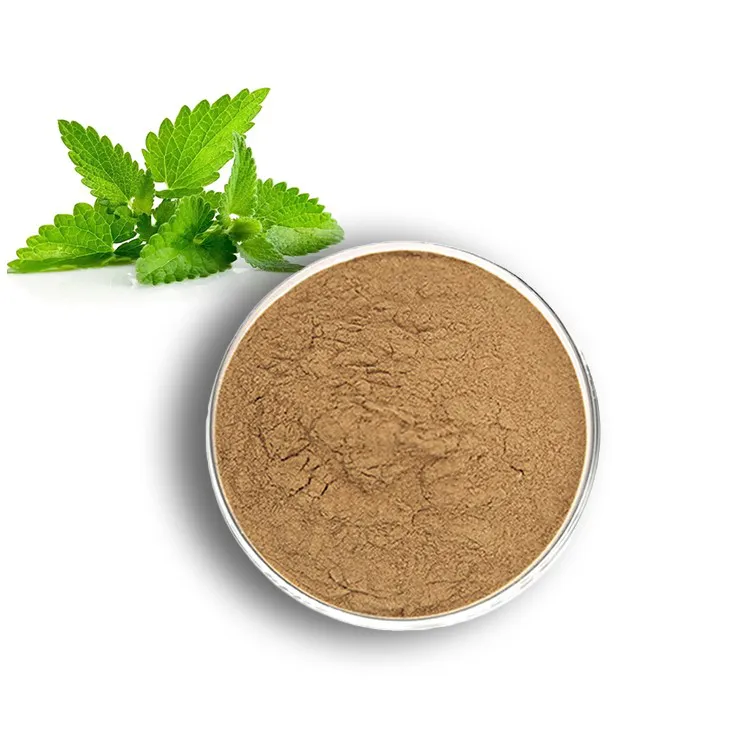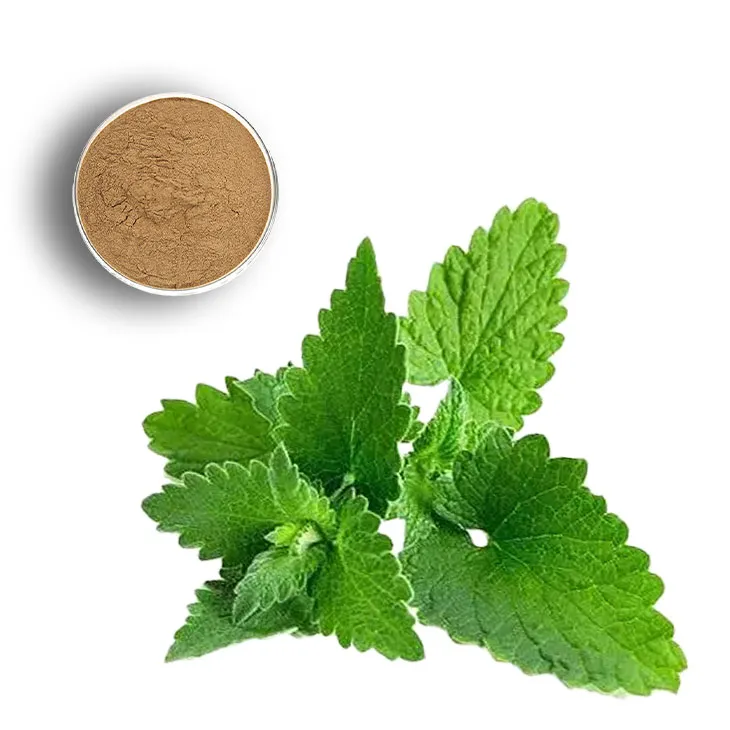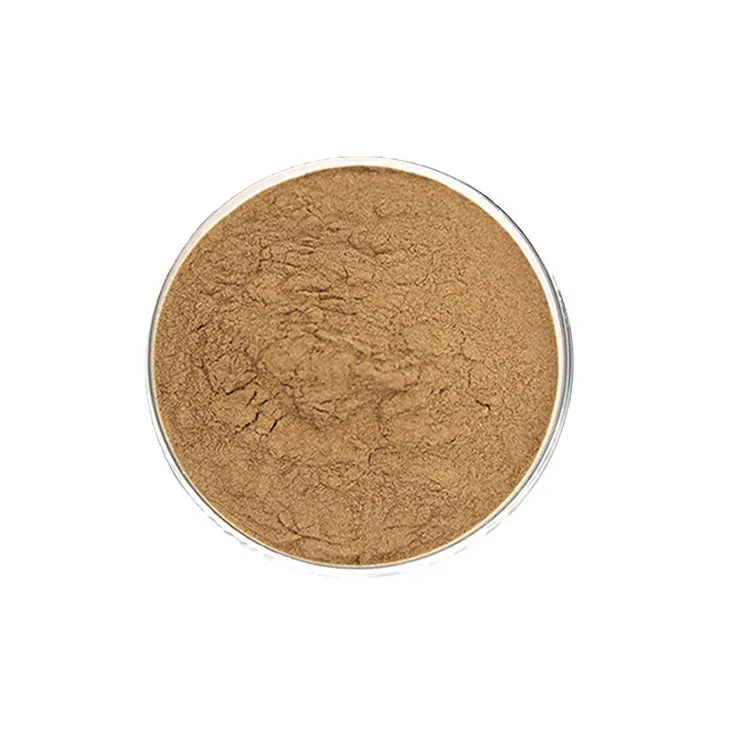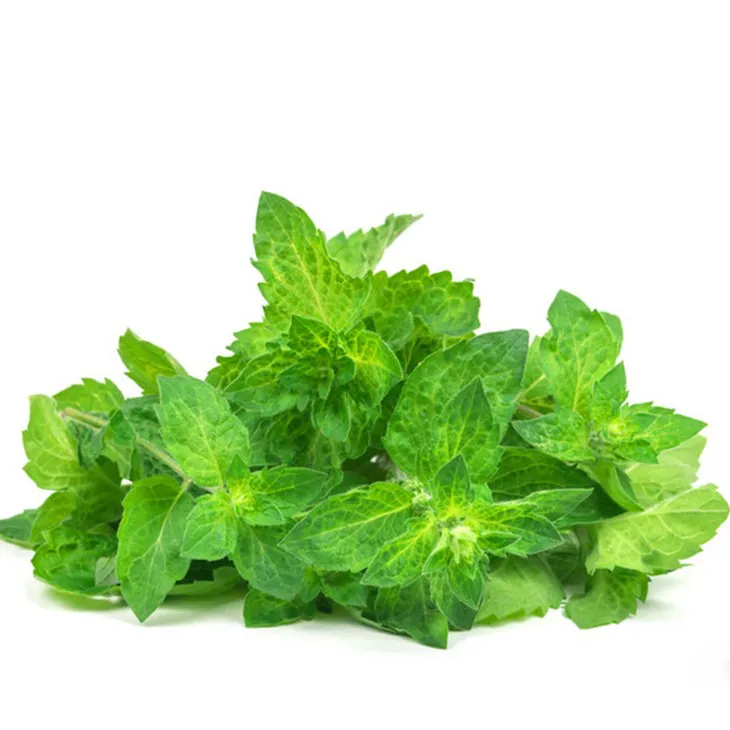- 0086-571-85302990
- sales@greenskybio.com
Lemon Balm Extract - Liquid Extract - 100% Natural (Standardized)
2024-12-13

Introduction
Lemon Balm Extract liquid extract, which is 100% natural and standardized, has been garnering growing attention across a diverse range of fields. Lemon balm, also known as Melissa officinalis, is a herbaceous plant that has been utilized for centuries due to its various beneficial characteristics. The extract obtained from this plant is a complex mixture of bioactive compounds, which are responsible for its extensive applications.

Source and Extraction Process
Lemon balm is a perennial plant that is native to Europe, North Africa, and West Asia. It is typically cultivated for its aromatic leaves, which are the main source of the extract.
Traditional Extraction
Traditionally, Lemon Balm Extract has been obtained through methods such as maceration or decoction. In maceration, the leaves of the lemon balm are soaked in a solvent (usually ethanol or water) for a certain period. This allows the bioactive compounds to dissolve into the solvent. Decoction, on the other hand, involves boiling the plant material in water to extract the desired components. However, these traditional methods may have some limitations in terms of efficiency and reproducibility.
Modern Extraction Techniques
With the advancement of technology, modern extraction techniques such as supercritical fluid extraction (SFE) and microwave - assisted extraction (MAE) have been explored for Lemon Balm Extract production. SFE uses supercritical carbon dioxide as a solvent, which offers several advantages such as being non - toxic, non - flammable, and having a low environmental impact. MAE, on the other hand, uses microwave energy to accelerate the extraction process, reducing the extraction time and potentially improving the yield of bioactive compounds.

Bioactive Compounds in Lemon Balm Extract
The liquid extract of lemon balm is rich in a variety of bioactive compounds, which play crucial roles in its applications.
- Terpenes: Terpenes are a large class of organic compounds found in lemon balm extract. For example, citral is a terpene that gives lemon balm its characteristic lemon - like aroma. Terpenes have been shown to have antimicrobial, anti - inflammatory, and antioxidant properties.
- Flavonoids: Flavonoids such as luteolin and apigenin are present in lemon balm extract. These compounds are known for their antioxidant and anti - inflammatory activities. They can also interact with cellular signaling pathways, potentially having beneficial effects on human health.
- Phenolic Acids: Compounds like rosmarinic acid are phenolic acids found in lemon balm. Rosmarinic acid has been studied for its antioxidant, anti - inflammatory, and antiviral properties. It may also contribute to the overall health - promoting effects of the lemon balm extract.

Applications in the Health Field
Stress and Anxiety Reduction
One of the most studied aspects of lemon balm extract in the health field is its potential in reducing stress and anxiety. The extract contains compounds that can interact with the body's neurotransmitter systems. For instance, it may affect the gamma - aminobutyric acid (GABA) receptor, which is an inhibitory neurotransmitter receptor. By modulating the GABA receptor, lemon balm extract can promote a sense of calmness and relaxation. Clinical studies have shown that supplementation with lemon balm extract can lead to a reduction in symptoms of stress and anxiety in some individuals.
Antioxidant Activity
As mentioned earlier, the bioactive compounds in lemon balm extract, such as flavonoids and phenolic acids, have antioxidant properties. Oxidative stress, which is caused by an imbalance between the production of free radicals and the body's antioxidant defense mechanisms, is associated with various diseases, including cardiovascular diseases, neurodegenerative diseases, and cancer. The antioxidant activity of lemon balm extract can help in neutralizing free radicals, thereby protecting the body against oxidative stress. This may contribute to the overall well - being and potentially reduce the risk of developing certain diseases.
Digestive Health
Lemon balm extract may also have beneficial effects on digestive health. It has been traditionally used to relieve digestive problems such as indigestion, bloating, and stomach cramps. Some studies suggest that it may have antispasmodic properties, which can relax the smooth muscles in the gastrointestinal tract. Additionally, its antioxidant and anti - inflammatory properties may help in reducing inflammation in the digestive system, which is often associated with various digestive disorders.

Applications in the Cosmetic Industry
Skin - Soothing Properties
In the cosmetic industry, the natural origin of lemon balm extract makes it a highly desirable ingredient. It has the potential to soothe irritated skin. For example, in cases of sunburn or skin inflammation, the anti - inflammatory compounds in the extract can help to reduce redness and swelling. It can also provide a cooling sensation, which can be comforting to the skin.
Hydration
Lemon balm extract may contribute to skin hydration. The bioactive compounds in the extract can help to improve the skin's moisture - retaining ability. This is important for maintaining healthy - looking skin, as dehydrated skin can appear dull and flaky. By incorporating lemon balm extract into skincare products, such as creams and lotions, it is possible to enhance the hydration properties of these products.
Anti - Aging Effects
Due to its antioxidant properties, lemon balm extract may also have anti - aging effects on the skin. Free radicals can damage the skin cells and accelerate the aging process, leading to the formation of wrinkles, fine lines, and loss of skin elasticity. The antioxidant compounds in the extract can scavenge free radicals, protecting the skin from oxidative damage and potentially delaying the signs of aging.
Standardization of Lemon Balm Extract
Standardization is an important aspect of lemon balm extract production. Standardized extracts ensure that the quality and potency of the extract are consistent across different batches.
Importance of Standardization
For applications in the health and cosmetic industries, consistency is key. In the health field, if the potency of the extract varies between batches, it can be difficult to determine the appropriate dosage for a particular therapeutic effect. In the cosmetic industry, inconsistent quality can lead to variations in the performance of products. Standardization helps to overcome these issues by ensuring that the extract contains a defined amount of the key bioactive compounds.
Methods of Standardization
There are several methods for standardizing lemon balm extract. One common method is to measure the content of a specific bioactive compound, such as rosmarinic acid, and adjust the extraction process to ensure that each batch contains a similar amount of this compound. Another method is to use chromatographic techniques, such as high - performance liquid chromatography (HPLC), to analyze the composition of the extract and ensure its consistency.
Safety and Side Effects
Safety Profile
Lemon balm extract is generally considered safe for most people when used in appropriate amounts. It has a long history of use in traditional medicine, which provides some evidence of its safety. However, as with any supplement or ingredient, there are some precautions to be taken.
Potential Side Effects
Some individuals may experience mild side effects such as nausea, dizziness, or allergic reactions. Allergic reactions are more likely in people who are allergic to plants in the Lamiaceae family, to which lemon balm belongs. Pregnant and breastfeeding women should also consult a healthcare provider before using lemon balm extract, as there is limited research on its safety in these populations.
Conclusion
Lemon balm extract - liquid extract, which is 100% natural and standardized - has a wide range of applications in the health and cosmetic industries. Its rich composition of bioactive compounds endows it with properties such as stress - relieving, antioxidant, skin - soothing, and hydrating. The standardization of the extract ensures its quality and potency consistency, making it a reliable ingredient for various products. While it is generally safe, it is important to be aware of potential side effects and take appropriate precautions. As research on lemon balm extract continues, it is likely that more applications and benefits will be discovered in the future.
FAQ:
What are the main bioactive compounds in lemon balm extract?
The main bioactive compounds in lemon balm extract include rosmarinic acid, flavonoids, and phenolic acids. These compounds contribute to its various properties such as antioxidant and stress - reducing effects.
How does lemon balm extract reduce stress and anxiety?
Lemon balm extract contains compounds that can interact with the body's neurotransmitter systems, especially those related to mood regulation. For example, it may influence the GABAergic system, which is involved in promoting relaxation and reducing anxiety.
Can lemon balm extract be used for all skin types?
Generally, due to its soothing and hydrating properties, lemon balm extract can be beneficial for most skin types. However, individuals with extremely sensitive skin may need to do a patch test first to ensure there is no adverse reaction.
What is the significance of standardization in lemon balm extract?
Standardization ensures that the quality and potency of the lemon balm extract are consistent. This is important as it allows for reliable results in different applications, whether in health products or cosmetics.
How is lemon balm extract produced?
Lemon balm extract is typically produced through a process of extraction from the lemon balm plant. This may involve methods such as solvent extraction or steam distillation to obtain the bioactive compounds in a liquid form.
Related literature
- The Pharmacological Properties of Lemon Balm (Melissa officinalis L.)"
- "Lemon Balm Extract: A Review of Its Potential Health Benefits"
- "Standardization of Herbal Extracts: The Case of Lemon Balm"
- ▶ Hesperidin
- ▶ citrus bioflavonoids
- ▶ plant extract
- ▶ lycopene
- ▶ Diosmin
- ▶ Grape seed extract
- ▶ Sea buckthorn Juice Powder
- ▶ Beetroot powder
- ▶ Hops Extract
- ▶ Artichoke Extract
- ▶ Reishi mushroom extract
- ▶ Astaxanthin
- ▶ Green Tea Extract
- ▶ Curcumin Extract
- ▶ Horse Chestnut Extract
- ▶ Other Problems
- ▶ Boswellia Serrata Extract
- ▶ Resveratrol Extract
- ▶ Marigold Extract
- ▶ Grape Leaf Extract
- ▶ blog3
- ▶ blog4
- ▶ blog5
-
Seven Trends of Nettle Leaf Extracts.
2024-12-13
-
Red Date Extract
2024-12-13
-
Golden Seal Extract
2024-12-13
-
Citrus bioflavonoids
2024-12-13
-
Saffron Extract Powder
2024-12-13
-
Lemon Balm Extract
2024-12-13
-
Panax Ginseng Leaf Extract
2024-12-13
-
Nettle leaf extract
2024-12-13
-
White mustard seed extract
2024-12-13
-
Curcuma Longa Extract
2024-12-13
-
Curcumin Extract
2024-12-13




















